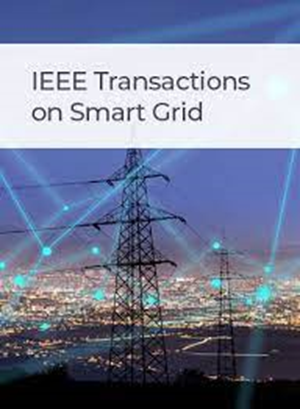A Transformer-Based Method of Multienergy Load Forecasting in Integrated Energy System
IF 9.8
1区 工程技术
Q1 ENGINEERING, ELECTRICAL & ELECTRONIC
引用次数: 33
Abstract
Multienergy load forecasting technique is the basis for the operation and scheduling of integrated energy system. Different types of loads in an integrated energy system, i.e., electricity load, heat load, cold load, might have complex and strong coupling relationships among them. If the internal relationship of multienergy load can be considered to realize joint prediction, the accuracy of multienergy load forecasting could be improved. This paper proposes a multi-task model, MultiDeT (Multiple-Decoder Transformer), which firstly adopts the one-encoder multi-decoder structure to realize the multi-task architecture and perform joint prediction of multienergy load. Based on the encoder-decoder architecture, the proposed model encodes all the input data by a uniform encoder and performs each forecasting task by multiple decoders. All tasks share the same encoder parameters, but have dedicated decoders for subtask learning. Therefore, the proposed multi-decoder structure can achieve different levels of attention to the output representation of the encoder by multi-head attention. The entire model is jointly trained end-to-end with losses from each task. Finally, the proposed model is tested on the publicly available datasets. Compared with other forecasting models, the results show that the proposed model has more accurate load forecasting results and has higher generalization capability.基于变压器的综合能源系统多能负荷预测方法
多能源负荷预测技术是综合能源系统运行和调度的基础。集成能源系统中的不同类型的负载,即电力负载、热负载、冷负载,它们之间可能具有复杂而强的耦合关系。如果能够考虑多能源负荷的内部关系来实现联合预测,则可以提高多能源负荷预测的准确性。本文提出了一种多任务模型MultiDeT(Multiple Decoder Transformer),该模型首先采用一个编码器-多个解码器的结构来实现多任务架构,并对多能量负载进行联合预测。基于编码器-解码器架构,该模型通过统一的编码器对所有输入数据进行编码,并通过多个解码器执行每个预测任务。所有任务共享相同的编码器参数,但具有用于子任务学习的专用解码器。因此,所提出的多解码器结构可以通过多头注意力来实现对编码器的输出表示的不同级别的注意力。整个模型是端到端联合训练的,每个任务都有损失。最后,在公开可用的数据集上对所提出的模型进行了测试。与其他预测模型相比,结果表明,该模型具有更准确的负荷预测结果和更高的泛化能力。
本文章由计算机程序翻译,如有差异,请以英文原文为准。
求助全文
约1分钟内获得全文
求助全文
来源期刊

IEEE Transactions on Smart Grid
ENGINEERING, ELECTRICAL & ELECTRONIC-
CiteScore
22.10
自引率
9.40%
发文量
526
审稿时长
6 months
期刊介绍:
The IEEE Transactions on Smart Grid is a multidisciplinary journal that focuses on research and development in the field of smart grid technology. It covers various aspects of the smart grid, including energy networks, prosumers (consumers who also produce energy), electric transportation, distributed energy resources, and communications. The journal also addresses the integration of microgrids and active distribution networks with transmission systems. It publishes original research on smart grid theories and principles, including technologies and systems for demand response, Advance Metering Infrastructure, cyber-physical systems, multi-energy systems, transactive energy, data analytics, and electric vehicle integration. Additionally, the journal considers surveys of existing work on the smart grid that propose new perspectives on the history and future of intelligent and active grids.
 求助内容:
求助内容: 应助结果提醒方式:
应助结果提醒方式:


